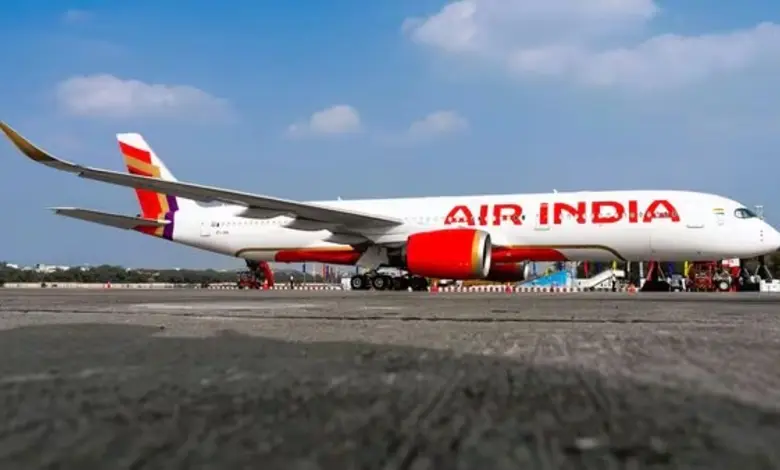Air India Flight’s Dramatic U-Turn: Mid-Air Alert Forces Safe Landing Amid Broader Safety Scrutiny

MUMBAI – An Air India Boeing 777 bound for Newark encountered a potential mechanical fault shortly after takeoff, prompting its crew to execute a swift return to Mumbai’s Chhatrapati Shivaji Maharaj International Airport on Tuesday, October 22. The airline confirmed the incident, emphasizing that passenger safety protocols guided the decision.
Flight AI191 lifted off around midday, carrying over 250 passengers and crew toward the U.S. East Coast. Less than an hour into the journey, over the Arabian Sea, the flight deck detected what an Air India spokesperson described as a “suspected technical anomaly.” Without hesitation, the pilots initiated a precautionary diversion, circling back to base under clear skies and calm conditions. The aircraft touched down without further issues by early afternoon, allowing all aboard to disembark routinely.
“The return was executed in full compliance with our rigorous safety standards,” the spokesperson stated. Ground teams immediately launched a comprehensive inspection to verify the plane’s condition. As a result, Air India cancelled both the outbound leg and its counterpart, AI144 from Newark to Mumbai, to facilitate uninterrupted maintenance. No injuries were reported, and the episode unfolded amid otherwise normal operations at the bustling hub.
ALSO READ : Boeing and FAA Ignored 787 Dreamliner Water Leak Warnings Since 2016, Lawyer Claims in Air India Crash Probe
For those impacted, Air India swiftly arranged accommodations in Mumbai hotels and secured seats on alternate flights operated by the carrier or its partners. Travelers on the Newark departure received similar support, with notifications sent promptly to minimize disruptions. “Our foremost commitment is the security and comfort of everyone on board,” the spokesperson added, framing such returns as standard procedures to address even the slightest concerns proactively.
This episode comes against a backdrop of heightened attention to Air India’s operational reliability. Just days earlier, the airline deployed a special Milan-Delhi service to repatriate stranded passengers following a separate technical cancellation. Broader fleet expansions are also underway, with ongoing discussions for up to 300 new aircraft from Airbus and Boeing to bolster global reach. Additionally, Air India recently boosted domestic connectivity by adding more than 170 weekly flights across key Indian routes for the northern winter season.
In a related but unrelated tragedy, authorities in Gurugram, Haryana, reported the death of Prafull Sawant, a Mumbai-based Air India flight safety auditor, discovered in his Sector 30 paying guest lodging. The 40-something employee had checked in recently for work-related reasons. PG staff alerted police after he failed to respond to calls following a routine morning exchange.
A caretaker recounted that Sawant, after breakfast, transferred funds via UPI for lunch but went silent thereafter. Attempts to reach him yielded no answer, leading to a welfare check. Officers forced entry to find him unresponsive on his bed. No note indicating self-harm was present, and initial probes uncovered no signs of external involvement.
“We are reviewing nearby CCTV recordings and interviewing fellow residents and staff,” a senior police official noted. The autopsy has been completed, with the remains released to relatives as inquiries proceed. Air India CEO Campbell Wilson has previously highlighted the airline’s “entirely normal” incident rates given its high-volume schedule of over 1,200 daily departures, underscoring ongoing efforts to maintain excellence in a competitive landscape.




